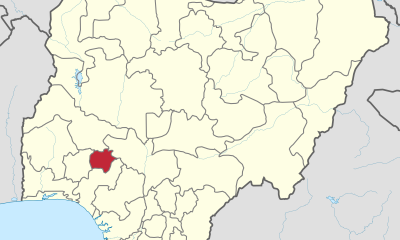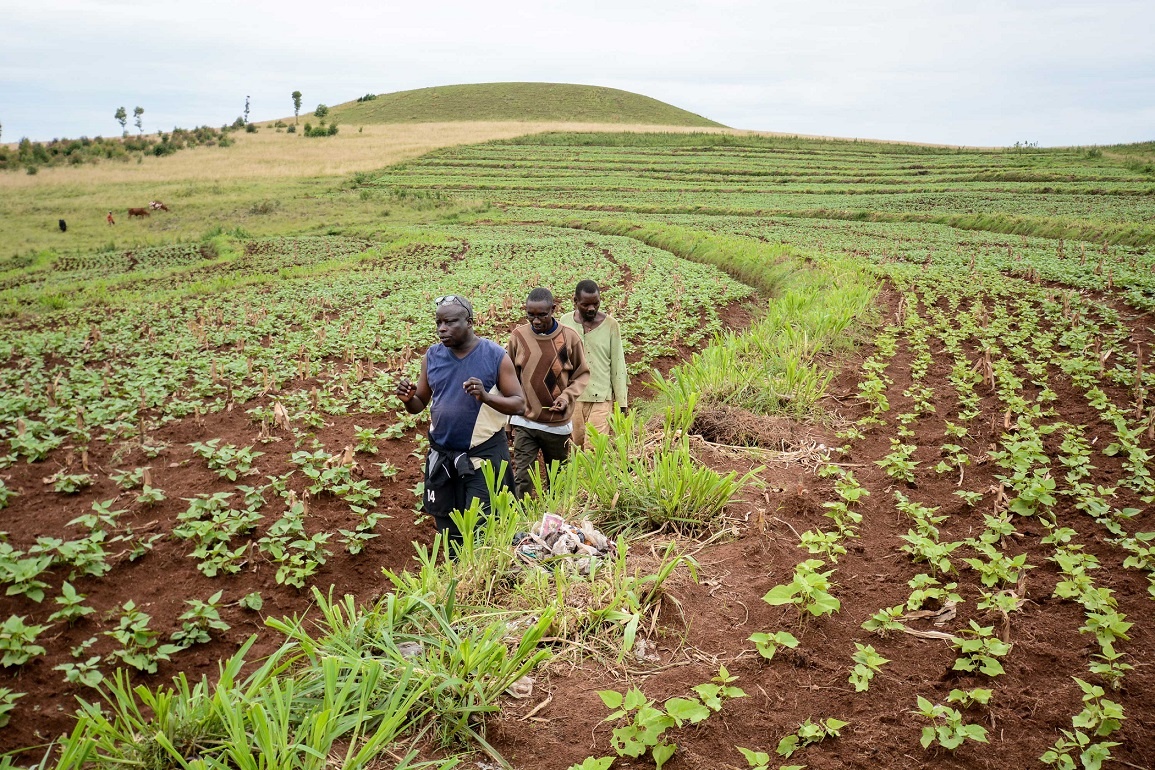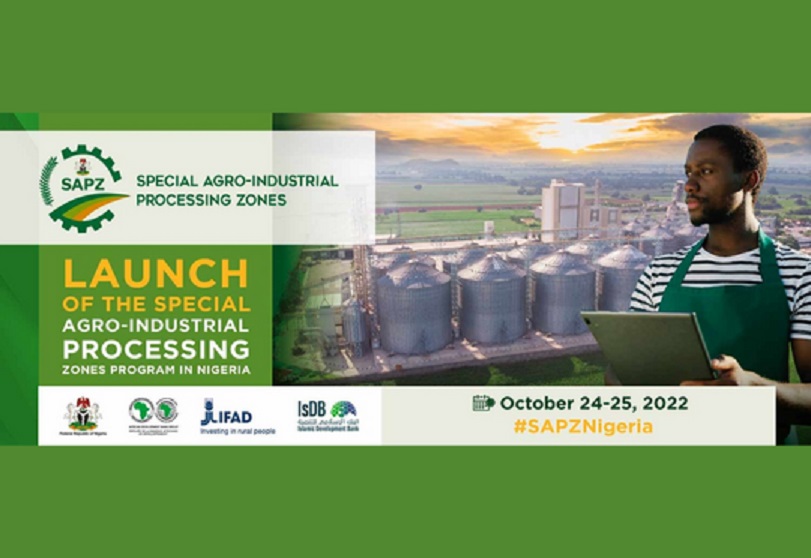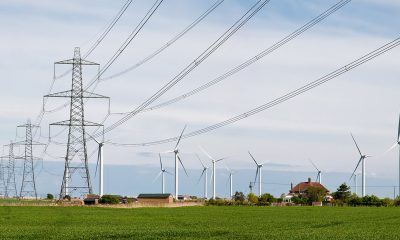Economy
Nigeria Launches $520m Special Agro-Industrial Processing Zones to End Hunger

By Adedapo Adesanya
Nigeria has begun its long journey to end hunger and achieve food security by launching the Special Agro-industrial Processing Zones (SAPZ).
The launch ceremony in Abuja on Monday kick-starts the implementation of phase one of the SAPZ program in eight states across the country. These include – Cross River, Imo, Kaduna, Kano, Kwara, Ogun, Oyo, and the Federal Capital Territory, Abuja.
The SAPZ program has already garnered huge momentum as an additional 19 state governments have expressed strong interest in participating in the program.
The African Development Bank (AfDB) is providing funding of $210 million, with the Islamic Development Bank (IsDB) and the International Fund for Agricultural Development (IFAD) jointly providing $310 million, while the Nigerian government will contribute $18.05 million.
President Muhammadu Buhari, in remarks delivered by Vice President, Mr Yemi Osinbajo, praised the initiative and said, “if the Special Agro-industrial Processing Zones program delivers on its objectives, and we have no doubt that it will, then we would in less than a decade have dealt a fatal blow to food insecurity, create millions of good paying agro-industrial jobs and opportunities and radically improve export earnings from agriculture.”
On his part, the AfDB President, Mr Akinwumi Adesina, said, “the Special Agro-industrial Processing Zones are new economic zones, located in rural areas, to be fully supported by infrastructure (power, water, roads, digital infrastructure, and logistics) that will allow food and agribusiness companies to locate within such zones.
“This will put them close to farmers in production catchment areas, provide market offtakes for farmers, support processing and value addition, reduce food losses, and allow the emergence of highly competitive food and agricultural value chains.”
Mr Adesina, a former minister of agriculture of Nigeria, said: “Hunger in Nigeria cannot be justified. Nigeria has the land, with 34 million hectares of arable land with rich and diverse agroecology. It has water. It has the labour. It has great sunshine. Nigeria must achieve zero hunger. There is no reason for anyone to go hungry in Nigeria.”
To help Africa prevent a food crisis from the Russia-Ukraine war, the lender launched a $1.5 billion African Emergency Food Production Facility to support 20 million farmers to access climate-resilient agricultural technologies and produce 38 million metric tons of food valued at $12 billion.
“The African Emergency Food Production Facility provided $134 million to Nigeria, one of the highest levels of support across African countries. I would like to thank the Japanese International Development Agency (JICA) for co-financing this with an additional $110 million. That means we collectively made available $244 million for emergency food production in Nigeria,” the bank group head said.
Noting that the latest Global Hunger Index (2022) ranks Nigeria 103rd among 121 countries facing hunger crisis in the world, Mr Adesina called for “greater action, responsiveness, and delivery to avert a food crisis in Nigeria”.
“Nigeria must decisively tackle insecurity challenges that prevent farmers from going to the farms. Food security needs national security,” said Mr Adesina.
In a rallying call around the SAPZ program, Mr Adesina said: “The Special Agro-Industrial Processing Zones (SAPZs) will help feed Nigeria, transform rural economies, expand fiscal space, fully unlock Nigeria’s agricultural potential, and create millions of jobs.”
“I am delighted that the SAPZs have finally come to pass in Nigeria and across Africa,” he said.
According to the IsDB President, Mr Muhammad Al Jasser, “with the disruption of supplies arising from the war, Africa now faces a shortage of at least 30 million metric tons of food imports from Russia and Ukraine, especially for wheat, maize, and soybeans. Urgent actions are needed to prevent a food crisis in Africa.”
He expressed confidence Nigeria will efficiently implement the SAPZ program, which will boost food production, reduce food price inflation, and transform the agriculture sector while assuring food security and creating jobs.
On her part, the Associate Vice President of the International Fund for Agricultural Development, Ms Katherine Meighan, said her organization is determined to contribute to the overall goal of the SAPZ programme by empowering 100,000 direct beneficiaries, including smallholders, small processors, traders, and service providers in Ogun and Kano State, with a strong focus on youth and women.
“Our empowerment strategy aims to equip farmers and smallholders to take advantage of the markets created by the SAPZ to sustainably enhance their income through income-generating activities, household food security and nutrition, and resilience to climate change,” said Ms Meighan.
The zones will develop value chains for selected strategic crops in Nigeria, including maize, cassava, rice, soybean, cocoa, poultry, and livestock products. They will also create millions of quality jobs, especially for youth and women.
Speaking on behalf of the phase one participating states and the Federal Capital Territory, the Governor of Cross River State, Mr Ben Ayade, praised the innovativeness of the program and said “the SAPZ program will help Nigeria develop an economy independent of oil. The program is a classical departure from other projects we know.”
During the event, Vice President Osinbajo launched a set of commemorative stamps for the Special Agro-industrial Processing Zones. The stamps were designed by Nigerian Postal Service (NIPOST) in conjunction with a local NGO, FLEESD.
Economy
Champion Breweries Concludes Bullet Brand Portfolio Acquisition

By Aduragbemi Omiyale
The acquisition of the Bullet brand portfolio from Sun Mark has been completed by Champion Breweries Plc, a statement from the company confirms.
This marks a transformative milestone in the organisation’s strategic expansion into a diversified, pan-African beverage platform.
With this development, Champion Breweries now owns the Bullet brand assets, trademarks, formulations, and commercial rights globally through an asset carve-out structure.
The assets are held in a newly incorporated entity in the Netherlands, in which Champion Breweries holds a majority interest, while Vinar N.V., the majority shareholder of Sun Mark, retains a minority stake.
Bullet products are currently distributed in 14 African markets, positioning Champion Breweries to scale beyond Nigeria in the high-growth ready-to-drink (RTD) alcoholic and energy drink segments.
This expansion significantly broadens the brewer’s addressable market and strengthens its revenue base with an established, profitable portfolio that already enjoys strong brand recognition and consumer loyalty across multiple markets.
“The successful completion of our public equity raises, together with the formal close of the Bullet acquisition, marks a defining moment for Champion Breweries.
“The support we received from both existing shareholders and new investors reflects strong confidence in our long-term strategy to build a diversified, high-growth beverage platform with pan-African scale.
“Our focus now is on disciplined execution, integration, and delivering sustained value across markets,” the chairman of Champion Breweries, Mr Imo-Abasi Jacob, stated.
Through this transaction, Champion Breweries is expected to achieve enhanced foreign exchange earnings, expanded distribution leverage across African markets, integrated supply chain efficiencies, portfolio diversification into high‑growth consumer beverage categories, and strengthened presence in the RTD and energy drink segments.
The acquisition accelerates Champion Breweries’ transition from a regional brewing business to a multi-category consumer platform with continental reach.
Bullet Black is Nigeria’s leading ready-to-drink alcoholic beverage, while Bullet Blue has built a strong presence in the energy drink category across several African markets.
Economy
M-KOPA Nigeria Plans Expansion to Edo, Others After N231bn Credit Milestone

By Adedapo Adesanya
Emerging market fintech firm, M-KOPA, has announced plans to deepen its reach in Nigeria to the South South and South East regions, starting with Edo this year, after providing N231 billion in credit to over 1 million customers in the country.
The firm released its first Nigeria-focused Impact Report, which showed that Nigeria is M-KOPA’s fastest-growing market and fastest to reach the milestone.
Since its foray into the Nigerian market in 2019, M-KOPA has been working to dismantle barriers to financial inclusion by providing flexible smartphone financing and digital financial tools that align with how people in the informal economy earn and manage their money.
It operates in six states in the country, including Lagos, Ogun, and Oyo, among others.
The report highlights the company’s contribution to income generation, digital inclusion and economic opportunity for Every Day Earners across the country.
The report showed that M-KOPA has enabled 290,000 first-time smartphone users, while 56 per cent of agents accessed their first income opportunity through the platform.
It showed high income and livelihood gains among its users, with about 77 per cent of customers leveraging smartphones or digital loans obtained through the platform to generate income, indicating that access to financed devices is directly supporting micro-entrepreneurial activity and informal sector productivity.
Furthermore, 75 per cent of users report higher earnings since gaining access to M-KOPA’s services, suggesting measurable improvements in personal revenue streams. On the distribution side, 99 per cent of agents disclose increased earnings, reflecting positive spillover effects across the company’s value chain.
In addition, 81 per cent of long-term customers state that their household expenses have improved, pointing to enhanced financial stability and better consumption smoothing over time.
Speaking on the report, Mr Babajide Duroshola, General Manager, M-KOPA Nigeria, said, “Nigeria represents extraordinary potential, and we’re proud that it has become M-KOPA’s fastest-growing market. Our Impact Report shows that when Every Day Earners gain access to the right digital and financial tools, they use them to create stability and long-term progress for their families. This is about access that unlocks opportunity and sustained prosperity.”
On its expansion plans Nigeria-wide, the M-KOPA helmsman said, “Many of the states we are considering are already similar to the ones we are currently in proximity… So, there is proximity and similarity between these states, and that’s what we are going to do, starting with Edo.”
He noted that as M-KOPA Nigeria continues to expand, the focus remains on ensuring more everyday earners gain access to the digital and financial tools they need to build resilient, prosperous futures in Nigeria’s rapidly digitising economy.
Economy
Tinubu Okays Extension of Ban on Raw Shea Nut Export by One Year

By Aduragbemi Omiyale
The ban on the export of raw shea nuts from Nigeria has been extended by one year by President Bola Tinubu.
A statement from the Special Adviser to the President on Information and Strategy, Mr Bayo Onanuga, on Wednesday disclosed that the ban is now till February 25, 2027.
It was emphasised that this decision underscores the administration’s commitment to advancing industrial development, strengthening domestic value addition, and supporting the objectives of the Renewed Hope Agenda.
The ban aims to deepen processing capacity within Nigeria, enhance livelihoods in shea-producing communities, and promote the growth of Nigerian exports anchored on value-added products, the statement noted.
To further these objectives, President Tinubu has authorised the two Ministers of the Federal Ministry of Industry, Trade and Investment, and the Presidential Food Security Coordination Unit (PFSCU), to coordinate the implementation of a unified, evidence-based national framework that aligns industrialisation, trade, and investment priorities across the shea nut value chain.
He also approved the adoption of an export framework established by the Nigerian Commodity Exchange (NCX) and the withdrawal of all waivers allowing the direct export of raw shea nuts.
The President directed that any excess supply of raw shea nuts should be exported exclusively through the NCX framework, in accordance with the approved guidelines.
Additionally, he directed the Federal Ministry of Finance to provide access to a dedicated NESS Support Window to enable the Federal Ministry of Industry, Trade and Investment to pilot a Livelihood Finance Mechanism to strengthen production and processing capacity.
Shea nuts, the oil-rich fruits from the shea tree common in the Savanna belt of Nigeria, are the raw material for shea butter, renowned for its moisturising, anti-inflammatory, and antioxidant properties. The extracted butter is a principal ingredient in cosmetics for skin and hair, as well as in edible cooking oil. The Federal Government encourages processing shea nuts into butter locally, as butter fetches between 10 and 20 times the price of the raw nuts.
The federal government said it remains committed to policies that promote inclusive growth, local manufacturing and position Nigeria as a competitive participant in global agricultural value chains.
-

 Feature/OPED6 years ago
Feature/OPED6 years agoDavos was Different this year
-
Travel/Tourism10 years ago
Lagos Seals Western Lodge Hotel In Ikorodu
-

 Showbiz3 years ago
Showbiz3 years agoEstranged Lover Releases Videos of Empress Njamah Bathing
-

 Banking8 years ago
Banking8 years agoSort Codes of GTBank Branches in Nigeria
-

 Economy3 years ago
Economy3 years agoSubsidy Removal: CNG at N130 Per Litre Cheaper Than Petrol—IPMAN
-

 Banking3 years ago
Banking3 years agoSort Codes of UBA Branches in Nigeria
-

 Banking3 years ago
Banking3 years agoFirst Bank Announces Planned Downtime
-

 Sports3 years ago
Sports3 years agoHighest Paid Nigerian Footballer – How Much Do Nigerian Footballers Earn




















